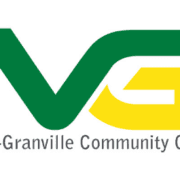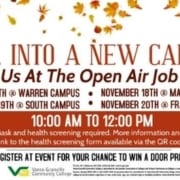Vast Majority of NC Votes to be Tallied and Reported Tonight
THIS STORY IS PRESENTED IN PART BY DRAKE DENTISTRY
-Press Release, NC State Board of Elections
The N.C. State Board of Elections anticipates that the results reported by the end of election night will include 97 percent or more of all ballots cast in North Carolina in the 2020 general election.
As always, the remaining ballots, including provisional ballots and absentee by-mail ballots that arrive after Election Day, will be counted and added to the totals during the post-election canvass period.
As they become available after all polls close Tuesday night, unofficial election results will be posted here: https://er.ncsbe.gov/.
“Please remember that all results reported on election night are unofficial. We will post results as quickly as possible, but our primary objective will be accuracy more than speed,” said Karen Brinson Bell, executive director of the State Board of Elections. “State and county elections officials take many steps after every election to ensure all eligible votes are counted and the results are audited and accurate.”
Please see below for details on how votes are counted, how and when results are reported on election night and information about post-election audits, recounts and canvass.
What votes will be counted and reported on election night 2020?
The vast majority of all votes cast in the 2020 general election in North Carolina will be reported as unofficial results on November 3. All results are unofficial until the statewide certification, or canvass, scheduled for November 24, during a meeting of the State Board. (See “What happens after election night?” below.)
If all goes as expected, the following unofficial results will be reported to the public on election night through the Election Results Dashboard:
- All in-person one-stop early votes
- All by-mail absentee votes received by the county boards of elections by 5 p.m. Monday, November 2
- All Election Day votes, excluding provisional ballots, which must be researched post-election to determine voter eligibility
When will results be reported to the public?
The State Board will begin posting results publicly after polls close statewide at 7:30 p.m. Tuesday. However, the State Board may extend voting hours at a polling place if polls are delayed in opening for more than 15 minutes or are interrupted for more than 15 minutes after opening. Any polling extension may not be longer than the delay in voting. No results will be posted until all polls are closed.
The State Board will issue a notice if the State Board meets on Election Day to consider polling hours extensions. The public will be able to listen to the meeting remotely.
Below is an estimated timeline of the expected reporting of unofficial results to the Election Results Dashboard. Reporting times will vary by county. Results are updated every few minutes as they come in from the counties.
- 7:30 p.m.: Polls close.
- 7:30 p.m. – 9 p.m.: Counties report results of in-person, one-stop early voting and absentee by-mail ballots received by 5 p.m. Monday, November 2.
- 7:30 p.m. – 9:30 p.m.: Precinct officials hand-deliver Election Day results to county boards of elections offices.
- 8:30 p.m. – midnight: Election Day precinct results are reported; reporting continues until all Election Day results are posted.
Various factors can affect the timing of results.
What happens after election night?
Elections are far from over on election night. This has always been the case. In the days that follow, the county boards of elections count the remaining ballots, research the eligibility of each provisional ballot, conduct a series of post-election audits, and conduct any necessary recounts. The State Board conducts additional audits to ensure a fair and accurate count.
These post-election processes culminate in the final certification of results, also called canvass. County boards of elections will hold their canvass meeting at 11 a.m. November 13. The State Board will meet on November 24 to certify the election.
For more information about NC election audits and canvass, see the Post-Elections Procedures and Audits webpage.
Absentee ballots. Mail-in absentee ballots postmarked on or before Election Day will be accepted by county boards of elections until 5 p.m. November 12. Overseas and military absentee ballots also are accepted through November 12. These ballots will be added to the unofficial results during the canvass process.
Provisional ballot meetings. Provisional ballots are cast when an individual’s name does not appear on the poll book or other questions arise about that person’s eligibility to vote or to vote a particular ballot.
Each county board of elections meets before certifying the results to make decisions on provisional applications submitted by voters. If the board determines that the voter is eligible, the provisional ballot is counted. If the voter is eligible for some contests on the ballot but not others, the eligible contests will be counted. These ballots will be added to the unofficial results during the canvass process.
Sample Audit. Every county conducts a sample hand-to-eye count of ballots in randomly selected precincts and one-stop locations to confirm results tabulated by machine. Counties must conduct their hand-to-eye counts in public.
County canvass. County boards of elections will certify their results at public meetings held at 11 a.m. Friday, November 13. The county board certifies contests and referenda within the county boundaries.
Recounts. Any mandatory recounts would be conducted by county boards of elections after the county canvass and before the state canvass. For statewide contests, the vote difference must be 10,000 votes or fewer for a candidate who is the runner-up to demand a recount. For non-statewide contests, the difference between the candidates must be 1 percent or less of the total votes cast in the contest. The recount demand must be in writing and received by the State Board of Elections no later than noon on Tuesday, November 17. If a recount is demanded, the State Board of Elections office would issue a schedule, and the counties would conduct recounts individually during open meetings.
For contests under jurisdiction of county boards of elections, a demand for recount must be made in writing to the county board of elections by 5 p.m. Monday, November 16.
See general guidelines for recounts: http://reports.oah.state.nc.us/ncac/title%2008%20-%20elections/chapter%2009%20-%20conduct%20of%20vote%20recounts%20by%20county%20boards%20of%20elections/08%20ncac%2009%20.0106.html.
And see Recount of Optical Scan Ballots: http://reports.oah.state.nc.us/ncac/title%2008%20-%20elections/chapter%2009%20-%20conduct%20of%20vote%20recounts%20by%20county%20boards%20of%20elections/08%20ncac%2009%20.0107.html
State canvass. The State Board of Elections will certify statewide results for all federal, statewide, multi-district and judicial contests at a public meeting held at 11 a.m. Tuesday, Nov. 24. Results in each contest are not considered official until certified by the State Board. After state canvass, the board of elections with jurisdiction over each contest will issue a certificate of election to the prevailing candidate.
5 Important Facts About Election Security in 2020
- Under state law, all voting systems used in North Carolina must use paper ballots, producing a paper trail that can be recounted and audited. Every voter in all 100 counties will cast a paper ballot.
- Election night results are always unofficial. In the days that follow the election, election officials will ensure every eligible ballot is counted. They will audit and certify the results. This is a regular process after each election.
- In North Carolina, about 2,660 polling places will be open on Election Day and perhaps one million voters will cast ballots on November 3. Unexpected issues arise during every election, such as power outages, voting equipment malfunctions, tabulator or printer jams and long lines at some voting places. These are not indications of malicious activity, and processes are in place to respond to each of these scenarios.
- Because of COVID-19, North Carolinians are voting by mail in record numbers this year. All ballots must be postmarked on or before Election Day to be counted. Because of the surge in by-mail voting, more ballots than usual will be counted after Election Day. This means more North Carolinians will be able to vote successfully, despite the pandemic.
- Every polling place is staffed with bipartisan, trained officials from the local community who take an oath to uphold state elections laws and work together to ensure election security. Bipartisan State and county boards of elections oversee all aspects of elections in North Carolina.










